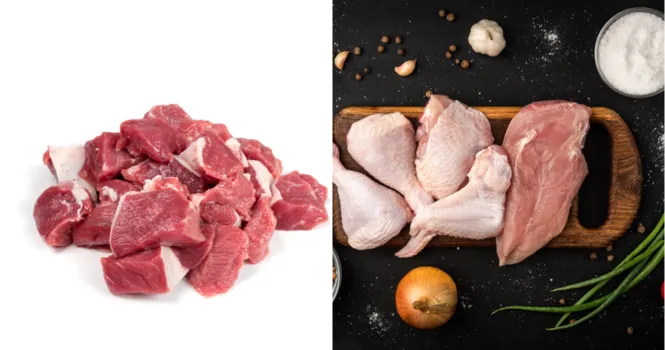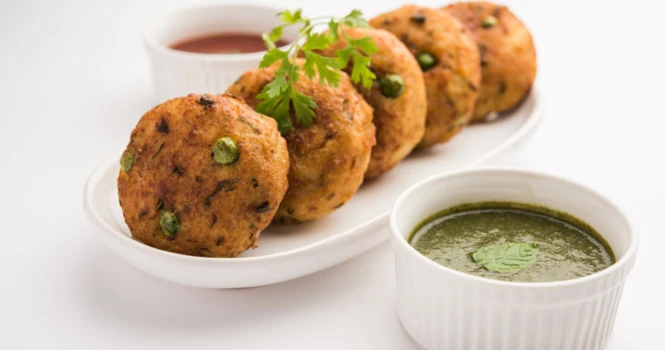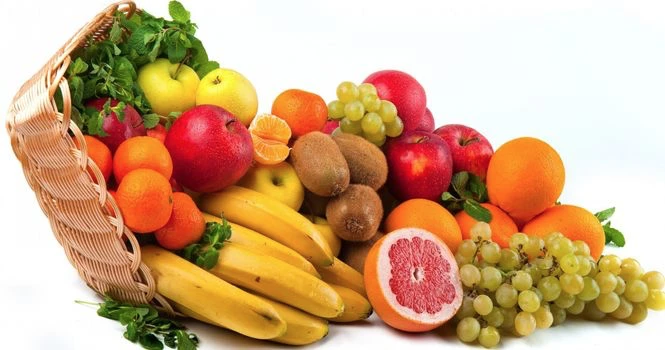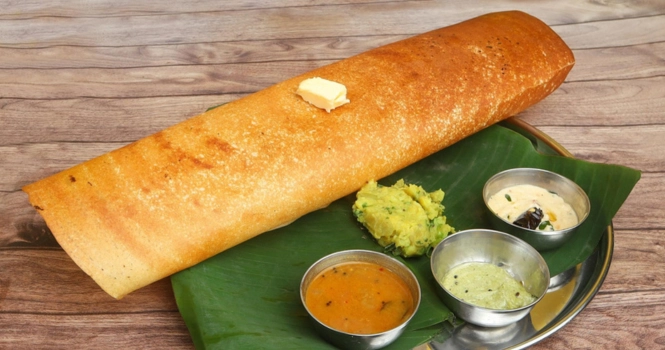High Calorie Foods For Weight Gain
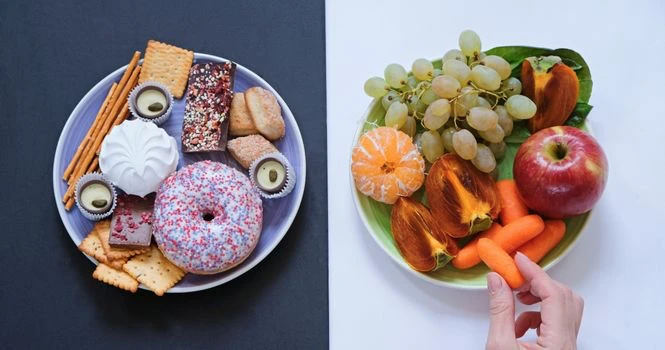
In an era where diet trends predominantly focus on weight loss and cutting calories, it’s refreshing to address the flip side of the coin.
For individuals with high metabolism, those looking to gain muscle, or anyone facing difficulties in maintaining a healthy weight, consuming high calorie foods for weight gain can be an essential strategy.
Whether you’re an athlete in need of extra fuel or someone struggling with a fast metabolism, this article will be your guide to high-calorie foods that can help you pack on the pounds in a nutritious way.
The intention of gaining weight should be grounded in health, which means it’s essential to choose nutrient-dense foods rather than just empty calories.
Often, when people think of high-calorie intake, they imagine gorging on fast food and sugary treats, which can wreak havoc on one’s health. In contrast, this article aims to highlight foods that are not only high in calories but also rich in essential nutrients and healthy fats, proteins, and carbohydrates.
Let’s start with body types and how genetics influences weight gain.
Body Types and Genetics: A Vital Aspect of Weight Gain
Body types and genetics significantly influence how easily or difficulty someone might gain weight.
Generally, there are three primary body types, known as somatotypes, which include ectomorph, mesomorph, and endomorph. Each of these body types has unique characteristics and tends to respond differently to diet and exercise.

Ectomorphs:
Ectomorphs typically have a slender build with a fast metabolism. This means they can consume a high number of calories without gaining much weight. For ectomorphs, weight gain can be a challenge. They may need to consume a significantly higher number of calories than the average recommendation and focus on strength training to build muscle mass.
Mesomorphs:
Mesomorphs have a more muscular build and a moderate metabolism. They tend to gain and lose weight relatively evenly. For mesomorphs aiming to gain weight, a balanced approach between increasing calorie intake and engaging in muscle-building exercises can be effective.
Endomorphs:
Endomorphs possess a more rounded and fuller physique with a slower metabolism. They tend to gain weight more easily, and it’s often in the form of fat rather than muscle.
Endomorphs looking to gain weight healthily should focus on consuming high-quality, nutrient-dense calories and combining this with regular strength training to ensure the weight gained is muscle and not just fat.

Genetics also play an essential role in determining body type and how a person gains weight.
Genetic factors can influence the rate of metabolism, hormonal balance, and the distribution of fat and muscle in the body. Some individuals may have a genetic predisposition to being underweight or overweight.
Understanding your body type and considering genetic factors can help in creating a more personalized and effective plan for weight gain.
It is essential to remember that each person’s body is unique, and what works for one may not work for another. Consulting a nutritionist or healthcare provider can also be beneficial in gaining insights into the best approaches for weight gain based on your body type and genetics.
Weight Gain for Vegetarians: High-Calorie Plant-Based Options
As a vegetarian, it is possible to effectively gain weight while maintaining a plant-based diet. The key is to focus on high calorie foods that are also rich in nutrients. Here’s a breakdown of vegetarian options that can help in achieving healthy weight gain:
1. Nuts and Seeds:
a. Almonds: High in calories, healthy fats, protein, and vitamin E.
b. Walnuts: Rich in omega-3 fatty acids, which are calorie-dense.
c. Chia Seeds: Full of fiber, protein, and omega-3s.
d. Sunflower Seeds: Calorie-dense and a good source of healthy fats and protein.
2. Dairy or Dairy Alternatives:
a. Full-Fat Yogurt: Rich in protein and healthy fats (if you consume dairy).
b. Cheese: A calorie-dense option with protein and fat (for lacto-vegetarians).
c. Almond Milk: A good alternative for those who avoid dairy, it can be used in smoothies or cereals.
3. Legumes and Lentils:
a. Chickpeas: High in protein and carbohydrates, great for salads and curries.
b. Lentils: Packed with protein and fiber, they can be used in stews and soups.
c. Black Beans: Full of protein and fiber, ideal for burritos or bean salads.
4. Whole Grains:
a. Quinoa: A complete protein and rich in carbohydrates.
b. Brown Rice: More calorie-dense compared to white rice, and full of nutrients.
c. Whole Grain Pasta: Use it as a base for calorie-rich pasta dishes.
5. Healthy Fats:
a. Avocado: Rich in calories and healthy monounsaturated fats.
b. Olive Oil: Can be used for cooking or as a dressing for extra calories.
c. Coconut Milk: Great for curries and sauces.
6. Plant-Based Protein Sources:
a. Tofu: Can be used in a variety of dishes and absorbs flavors well.
b. Tempeh: Fermented soy product, high in protein and with a nutty flavor.
c. Seitan: A high-protein meat substitute made from wheat gluten.
7. Fruits:
a. Bananas: Calorie-dense and high in carbohydrates.
b. Dried Fruits: Such as raisins, apricots, or dates are very calorie-dense.
c. Mangoes: High in calories and full of vitamins.
8. Smoothies and Shakes:
a. Combining nuts, seeds, fruits, and dairy or alternatives in a blender can result in a calorie-dense, nutrient-rich shake.
Remember to also focus on diverse and balanced meals, and don’t be afraid to consume larger portions if you’re trying to gain weight. It might also be helpful to speak to a nutritionist who has experience with vegetarian diets to make sure you are meeting all your nutrient needs.
Weight Gain for Non-Vegetarians: High-Calorie Foods from Animal Sources
For non-vegetarians aiming to gain weight, incorporating animal-based protein sources can be an effective way to achieve your goals. Including a combination of plant-based and animal-based high-calorie foods ensures a balanced intake of nutrients. Here’s a list of high-calorie non-vegetarian foods that can aid in healthy weight gain:
1. Meats:
a. Chicken Breast: Skin-on chicken breasts are high in protein and relatively lean.
b. Beef: Opt for cuts like ribeye or T-bone steaks, which are high in calories and protein.
c. Pork: Choose fattier cuts like pork belly or shoulder for a higher calorie content.
2. Seafood:
a. Salmon: Rich in omega-3 fatty acids and high-quality protein.
b. Tuna: A good source of protein and healthy fats, especially when it’s oil-packed.
c. Sardines: High in protein, omega-3 fatty acids, and vitamin D.
3. Dairy:
a. Full-Fat Milk: Contains protein, fats, and various essential nutrients.
b. Cheese: Opt for denser cheeses like Gouda, cheddar, or blue cheese.
c. Greek Yogurt: Higher in protein than regular yogurt and can be used in smoothies.
4. Eggs:
a. Whole Eggs: A complete protein source and rich in vitamins and minerals.
b. Omelets: Combine eggs with cheese, meats, and vegetables for a calorie-dense meal.
5. Fortified Animal-based Supplements:
a. Whey Protein: Can be added to shakes and smoothies for an extra protein boost.
b. Casein: A slow-digesting protein that can be good before bed.
6. Mixed Dishes:
a. Meat Curries: Using both meat and creamy sauces can be very calorie-dense.
b. Casseroles: Combine meats, vegetables, and grains in a dish with cheese or creamy sauces.
7. Snacks and Sides:
a. Jerky: High-protein and portable, though be cautious of the salt content.
b. Cottage Cheese: Great with fruits or nuts, and high in protein.
Remember that while aiming to consume high-calorie foods for weight gain, it is crucial to focus on nutrient-dense options that provide not only calories but also essential vitamins and minerals.
Also make sure to ensure that you are engaging in resistance training or other forms of exercise can help ensure that the weight you gain is muscle and not just fat. It might also be beneficial to consult a nutritionist or healthcare provider for personalized advice and meal planning.
High Calorie Indian Meal Plan For Vegetarians 3000 calories
Breakfast (around 750-800 calories):
- Vegetable Stuffed Paratha (3 pieces) with a side of curd (1 cup)
- Mixed nuts (Almonds, Walnuts, and Cashews) (1/3 cup)
Mid-morning Snack (around 350 calories):
- Banana Shake (made with 2 bananas, 1 cup whole milk, and a tablespoon of honey)
Lunch (around 900-950 calories):
- Chana Masala (1.5 cups)
- Rice (1.5 cups)
- Paneer (Cottage Cheese) Curry (1.5 cups)
- Whole wheat chapatis (3 pieces)
- Cucumber and Tomato Raita (1 cup)
Afternoon Snack (around 350 calories):
- Sprouts Chaat with potatoes and chickpeas (1.5 cups)
- Fresh fruit juice (without sugar) (1 glass)
Dinner (around 800-850 calories):
- Vegetable Biryani with cashews and paneer (2 cups)
- Mixed Vegetable Curry (1.5 cups)
- Whole wheat chapatis (3 pieces)
- Salad with olive oil dressing (1.5 cups)
Late-night Snack (around 250 calories):
- Mixed Dry Fruits (Almonds, Raisins, etc.) (1/3 cup)
High Calorie Indian Meal Plan For Non vegetarians 3000 calories
The following is an sample high-calorie Indian meal plan for non-vegetarians that adds up to approximately 3000 calories:
Breakfast (around 750-800 calories):
- Egg Paratha (2 pieces) with a side of curd (1 cup)
- Mixed nuts (Almonds, Walnuts, and Cashews) (1/3 cup)
- Mango Lassi (1 glass)
Mid-morning Snack (around 350 calories):
Chicken Sandwich (with 2 slices of whole-grain bread, chicken, lettuce, and mayo)
Lunch (around 900-950 calories):
- Chicken Biryani (1.5 cups)
- Mixed Vegetable Curry (1 cup)
- Whole wheat chapatis (2 pieces)
- Dal Makhani (1 cup)
- Cucumber and Tomato Salad with lemon dressing (1 cup)
Afternoon Snack (around 350 calories):
- Samosa (2 pieces)
- Fresh orange juice (1 glass)
Dinner (around 800-850 calories):
- Rogan Josh (Lamb Curry) (1 cup)
- Rice (1.5 cups)
- Butter Naan (2 pieces)
- Palak Paneer (Spinach and Cottage Cheese Curry) (1 cup)
- Raita with herbs (1 cup)
Late-night Snack (around 250 calories):
- Fruit Chaat with a mix of fruits including banana, apple, and papaya (1.5 cups)
This meal plan is designed for non-vegetarians and combines the richness of Indian flavors with a balanced intake of carbohydrates, proteins, healthy fats, and fiber.
Remember that portion sizes and calorie counts can vary, so adjust according to your needs and preferences. It’s also advisable to consult a nutritionist for personalized advice if you have specific dietary goals or health conditions.
Frequently Asked Questions
How to get 3,000 calories a day?
- Eat 5-6 meals spread throughout the day.
- Include high calorie foods like nuts, seeds, avocados, and dairy products.
- Drink high-calorie shakes or smoothies.
- Use healthy oils generously in cooking.
How to eat 4,000 calories a day ?
Include more calorie-dense foods like nuts, cheese, and fatty meats.
Use more grains in your meals, such as rice and pasta.
Include calorie-dense snacks between meals.
Drink high-calorie beverages like milkshakes or whole milk.
What foods gain weight fast ?
- Nuts and nut butters
- Red meats
- Cheese
- Whole eggs
- Oily fish like salmon
- Healthy oils like olive and coconut
- Whole grain bread
- Potatoes and starches
- Dried fruits
How to gain 1,000 calories fast ?
Drink a high-calorie shake made with whole milk, banana, oats, a scoop of protein powder, and almond butter.
Eat a large portion of nuts or granola.
How to get 5,000 calories a day ?
- Eat 6-8 meals spread throughout the day.
- Include high amounts of protein, carbohydrates, and fats in every meal.
- Use generous servings of healthy oils in cooking.
- Include calorie-dense snacks like nut bars, cheese, and dried fruits.
How can I eat 10,000 calories a day ?
This is a very high caloric intake and should only be attempted under medical supervision.
- Include high-calorie fast foods and desserts.
- Drink high-calorie protein shakes multiple times a day.
- Eat large portions in every meal.
Can you eat 6,000 calories a day ?
Yes, but it’s usually not recommended unless under specific conditions such as extreme athletics or under medical supervision.
- Eat very large portions at each meal.
- Include very calorie-dense foods and beverages.
Please note that suddenly consuming a significantly higher number of calories than what you are used to can have health risks. It is important to gradually increase your caloric intake and focus on nutrient-dense foods. Consulting a healthcare professional or nutritionist is advisable for personalized guidance based on your health and goals.
How to reach 2,000 calories a day ?
- Aim for balanced meals that include protein, carbohydrates, and fats.
- Include snacks like nuts, cheese, or yogurt.
- Drink calorie-containing beverages in moderation.
How to gain 2,500 calories per day ?
- Eat three balanced meals and include 2-3 snacks.
- Include calorie-dense foods like nuts, seeds, avocados, and dairy.
- Use healthy oils and include whole grains.
Will I gain weight if I eat 3,000 calories in one day?
It depends on your daily caloric expenditure. If 3,000 calories significantly exceed your daily caloric needs, you might gain weight, but a single day of high-calorie consumption is unlikely to result in substantial weight gain.
Weight gain or loss is more about a consistent caloric surplus or deficit over time.
Is it OK to eat 900 calories a day?
Consuming only 900 calories a day is considered a very low-calorie diet and is generally not recommended unless it’s done under medical supervision. Such a diet may lead to nutrient deficiencies and adverse effects on metabolism and overall health.
What fruit is the highest in calories?
Avocado is among the fruits highest in calories. It’s also rich in healthy fats, fiber, and various vitamins and minerals. Bananas, cherries, and grapes are also relatively high in calories compared to other fruits.
How can I eat 3,200 calories a day?
To consume 3,200 calories a day, divide your intake into 4-5 meals and snacks. Include calorie-dense foods like nuts, seeds, whole grains, fatty fish, meats, dairy products, and healthy oils. Incorporate high-calorie smoothies or shakes as well.
What fruits are fattening?
No fruit is inherently fattening, but some have higher calorie contents. Avocados, bananas, grapes, and dried fruits like raisins have more calories than others like berries or watermelon. However, they also provide valuable nutrients and can be part of a balanced diet.
How can a skinny person gain weight?
A skinny person can gain weight by consuming more calories than they expend. This should include a balanced diet with protein, carbohydrates, and fats. Incorporate calorie-dense foods, and engage in resistance training to build muscle.
What makes you fat quickly?
Consuming high-calorie, low-nutrient foods such as fast foods, sugary drinks, and excessive amounts of processed foods can lead to rapid weight gain, especially if combined with a sedentary lifestyle.
What should I eat daily to gain weight?
To gain weight, focus on consuming a balanced diet with a caloric surplus. Include protein sources like lean meats, fish, eggs, and legumes, carbohydrates like whole grains and starchy vegetables, healthy fats from nuts, seeds, and avocados, and a variety of fruits and vegetables for micronutrients.
How can I gain weight without sugar?
Focus on consuming whole, unprocessed foods that are high in calories. Include healthy fats like nuts, seeds, avocados, and olive oil. Eat protein-rich foods and complex carbohydrates. Avoid sugary drinks and sweets, and opt for whole fruits and dairy for a natural sweetness.
Sources
- https://www.ncbi.nlm.nih.gov/pmc/articles/PMC3151731/
- https://www.betterhealth.vic.gov.au/health/healthyliving
- weight-and-muscle-gain https://www.nutrition.gov/topics/healthy-living-and-weight/strategies-success
![]()



